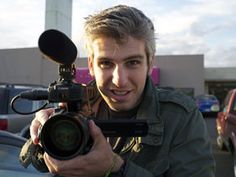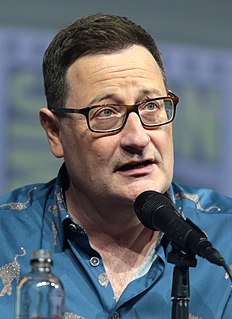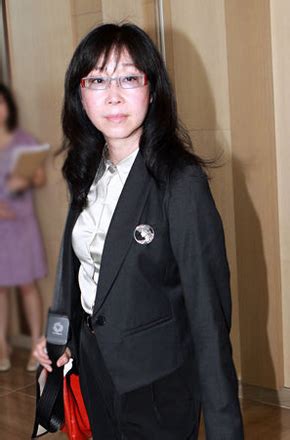A Quote by Brit Marling
I think I realized very early on that you can spend a lot of time constructing a really perfect scene in final draft and just end up throwing it away because you didn't figure out that mathematics of the story first.
Related Quotes
I really need to know where I'm going with fiction to write it in a way that at least I'm happy with. And I really think that a lot of fiction books end badly because terrific writers said, "I'll just figure it out" and plunge in, but have created so many problems that they are kind of impossible to solve. I mean, I'm talking really good writers do this and you can tell when they got to the end they either had to do something preposterous or they just don't really resolve things. So for fiction I spend a lot more time outlining and for humor I really don't do much of it.
It can take years. With the first draft, I just write everything. With the second draft, it becomes so depressing for me, because I realize that I was fooled into thinking I'd written the story. I hadn't-I had just typed for a long time. So then I have to carve out a story from the 25 or so pages. It's in there somewhere-but I have to find it. I'll then write a third, fourth, and fifth draft, and so on.
I taught everyone a very bad lesson at my publisher because they actually gave me deadlines this time and I'm now meeting them. I used to say, "Here's my book; it's six years late." I'm so much faster now, and work differently. With all the years of writing, I think I still draft as obsessively, but I think back to writing. On your first story, you start at draft one. On your second story, you start at draft ten. On your third story, you start at draft one hundred. If you need a hundred and eight drafts, you may write eight instead of a hundred and eight.
Writing 'Men We Reaped' broke me in different ways at different spots in the drafting process. The first draft was hard because I was just getting it out. In some ways, that draft failed. I was really just telling the story, not making assessments - this happened, then this. Just putting those facts down on paper was really painful.
We spend a lot of time and effort trying to figure out who's going to be a good NFL quarterback, and we do a very bad job of it. We don't really know. And we also spend a lot of time trying to figure out who will be a good teacher, and we're really bad at that too. We don't know if someone is going to be a good teacher when they start teaching. So what should we do in those situations in which predictions are useless?
With a new baby, you have a bad day now and again because you're particularly tired, but most of the time, you're fine. You spend a lot of your time trying to figure out how you can get more sleep, but really, you're better off just giving up and admitting that you're not going to, so forget about it.
I am a technophile, so there is no such thing as a first draft. The first draft plunges on, and about a quarter of the way through it I realise I'm doing things wrong, so I start rewriting it. What you call the first draft becomes rather like a caterpillar; it is progressing fairly slowly, but there is movement up and down its whole length, the whole story is being changed. I call this draft zero, telling myself how the story is supposed to go.
The first scene I ever appeared in, it was the first scene I ever shot [during my] first day on set. I walk up to my mom with a plastic bag over my head and she says that her clothes better not be on the floor, not that a plastic bag is not a safety hazard or anything. I think it's a really cute scene and also just a very vivid memory.






































